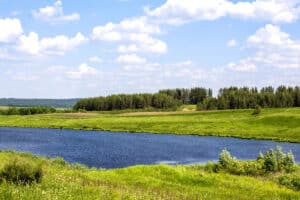The good news for recreational property buyers is that sales prices in many areas appear to have bottomed out, reducing the fear that you could have gotten a better deal if you’d waited to buy.
That said, it often isn’t simple to know whether you are offering a fair price for a property. In many cases, truly comparable sales can be hard to find, and unlike buying a house, it isn’t as easy to compare features of one property to another.
Here are five tips that can help recreational property buyers gain confidence in their buying decision:
- Work with a real estate professional experienced in selling recreational property in the area where you’re looking. As the old adage says, there’s no substitute for experience. Just as one example, an experienced recreational real estate pro will understand what went into the appraisal of a property, and whether it is far off the true current value. While most county assessors work hard to get reasonable values, some counties simply apply the same price per acre to every property to determine appraised value, not factoring in such factors as quality of timber, accessibility or proximity to water.
- Understand that true comps are very hard to find for recreational properties, particularly in this real estate market. Your broker will need to adjust any comps that are found, and that can be a challenge given the slow pace of sales in many areas. It’s acceptable to use comps that are miles away from your property of interest, as long as you understand how adjustments to estimated value were made and you are comfortable with them.
- In addition to only getting comps, have your real estate broker do a statistical analysis of the entire area. Instead of focusing only on two or three comps, ask the broker to look at the average and median sales prices for recreational property in the entire region. This will give you a better idea of how a property’s sales price fits into the larger picture. For recreational land, this analysis should include considering such features as timber, availability of utilities and quality of wildlife in evaluating how a property compares to others in the area. It’s also important to understand the highest and best use for the property. You might see a recreational property as a potential site for a second home, but someone else might see it as a development opportunity. Those different uses would lead to different valuations.
- Consider how you may want to improve the property and evaluate its total cost. More goes into evaluating the cost of a property than the sales price. Will you want to create more access, or to plant food plots to improve the quality of wildlife? Is there a trailer on the property that you might want to remove at some point? It’s smart to figure out a budget and timeline for projected improvements, and work that into your thinking as you consider a purchase.
- Think about your long-term plans, and use that information to help you evaluate different properties. Consider why you want to own a property, and how long you want to have it. For example, do you want to be able to pass it down to your kids? This will help you take a long-term approach in evaluating different properties and finding the right one to best fit your needs.
Rod Osterloh heads the land group for Close-Converse Properties, based in Brainerd, Minnesota. With 30-plus years of real estate experience, he specializes in helping recreational property buyers in north-central Minnesota, and is a member of Potlatch Corp.’s Preferred Broker Network and the Realtors Land Institute.
This content may not be used or reproduced in any manner whatsoever, in part or in whole, without written permission of LANDTHINK. Use of this content without permission is a violation of federal copyright law. The articles, posts, comments, opinions and information provided by LANDTHINK are for informational and research purposes only and DOES NOT substitute or coincide with the advice of an attorney, accountant, real estate broker or any other licensed real estate professional. LANDTHINK strongly advises visitors and readers to seek their own professional guidance and advice related to buying, investing in or selling real estate.










Add Comment